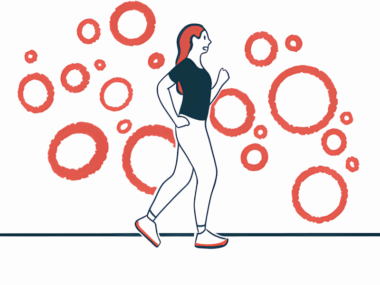A dose of ‘hopamine’ may help personalize Parkinson’s care
Concept embodies shift from 'What is the matter with you?' to 'What matters to you?'
Written by |

While dopamine-replacing therapies are a key component of Parkinson’s disease care, they only reflect a person’s physical characteristics or the state of their disease. Adding a dose of “hopamine” — a person’s own unique set of hopes, desires, experiences, and skills — to Parkinson’s care takes patients’ personal characteristics into account and may empower them to take an active part in managing their disease.
That’s according to “Hopamine as Personalized Medicine for Persons with Parkinson’s Disease,” a recent commentary published in the Journal of Parkinson’s Disease.
Penned by Marina Noordegraaf, a Parkinson’s patient, advocate, and researcher at the Dutch Parkinson’s Association, along with two Parkinson’s experts at the Radboud University Medical Center, the Netherlands, the article encourages doctors to enable their patients to “draft their own personalized prescription of ‘hopamine.’”
“Owing to the Marina’s experiences, this commentary stresses the importance for us as healthcare professionals to continuously stay curious, pause and tune in to the person with Parkinson’s for whom we are caring,” Bastiaan Bloem, MD, PhD, the study’s senior author and the founder of the Radboud’s Center of Expertise for Parkinson’s & Movement Disorders, said in a press release.
A scientist, Noordegraaf was diagnosed with Parkinson’s when she was 49 and began writing about life with the neurodegenerative disease, publishing a book of tips to identify, discuss, and overcome Parkinson’s-associated cognitive issues.
The term hopamine, which she invented, is a nod to dopamine, the brain chemical messenger that’s progressively lost in people with Parkinson’s and the increased production of which is the goal of standard Parkinson’s treatments.
A Parkinson’s diagnosis can be overwhelming and disempowering, leaving patients and their loved ones “in bewilderment and despair,” the researchers wrote, calling it “a moment when all hope seems to have been lost.” Over the disease course, it becomes easy to feel powerless, relying entirely on doctors to make care decisions.
Although well-intentioned, physicians may default to giving a general message of optimism to patients, that science is advancing rapidly or that medications will ease symptoms and slow the disease’s progression.
‘Hopamine’ — for a more personalized care of Parkinson’s
But every patient is different and the same goals don’t apply to all. While two patients may have the same clinical presentation, their life choices could be very different. Introducing false hopes can lead to hopelessness, the researchers said, adding when patients create their own, individualized goals, they can maintain, “a stable sense of self, feel in control and hold a positive mindset, despite illness changes and ongoing deterioration.”
This concept reflects a broader shift in healthcare, “including the transition from asking ‘What is the matter with you?’ to ‘What matters to you?’”
The hopamine formula encompasses a hope, an action to help achieve it, and an explanation about why that hope is within reach.
Noordegraff’s personal hopamine recipe involved cycling on a spinning bike for a half hour every day, because of evidence that exercise can be beneficial.
“I hope it will slow down my Parkinson’s progression and enable me to see my children grow up,” Noordegraff wrote, noting the goal was in her reach because the bike was relatively inexpensive and “waiting” for her at her “beside every morning.”
Hopamine recipes can also be collective, extending beyond the patient to the broader Parkinson’s community. They can be created by patients, caregivers, or physicians. For example, Bloem hoped to “see the day when a cure is born,” while Noordegraaf aimed to “help prevent unnecessary cases of Parkinson’s disease.”
When “dopamine and hopamine are considered equally,” personalized medicine may only then be truly established, the researchers wrote.
Doctors can work toward achieving this by helping patients be well educated about Parkinson’s and pointing them toward options for self-management, such as exercise or peer support groups.
Most importantly, clinicians should begin “seeing the person behind the diagnosis,” the researchers wrote. “Understanding that a diagnosis happens right in the middle of a life, with a story of its own, may help uncover unique talents, strengths, and resources.”
Hope, in turn, can promote better life quality for patients.
“So, in addition to their mere daily intake of dopamine replacement therapy, we wish the millions of persons with Parkinson’s disease in the world will take their own personalized daily dose of hopamine,” the researchers concluded.
The commentary was dedicated to Noordegraaf, who passed away in October 2022, shortly after the manuscript was submitted. Her co-author, Sanne van den Berg, PhD, called Noordegraaf “a fierce advocate for incorporating lived-experience of persons with Parkinson’s in both research and daily care.”
“As part of her legacy, we hope the message of hopamine will support persons with Parkinson’s and their healthcare professionals to truly co-create personalized care,” van den Berg said.



